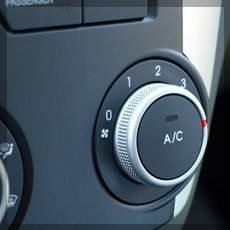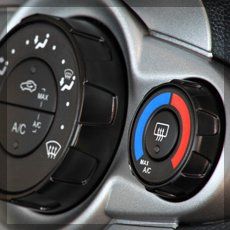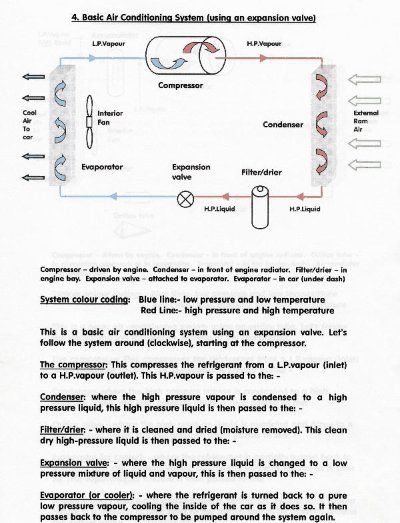FAQ
FAQs and air conditioning repairs
Please contact us on 0117 369 1234 if you have any more questions on our air conditioning repairs service.
Frequently asked questions
Why do I need to have my AC system serviced?
Read more
All vehicle air conditioning systems leak to some degree. The losses occur through refrigerant escaping through the pipe joins as a result of vibration and ageing of rubber hoses and 'O' ring seals, as well as through the seal on the front of the compressor shaft.
How often should the AC system by inspected/serviced?
An annual inspection is sufficient to check system condition and overall performance. A service of the system should be carried out at least every two years even if it appears to be working well.
Should the air conditioning system be run often throughout the year?
Yes, this helps to keep the system well lubricated and leak tight. The refrigerant actually carries the oil that lubricates the system, most importantly the compressor. It also keeps the seals and hoses moist, thus preventing them from drying out and cracking leading to leaks.
Why is looking after the compressor so critical?
This is the main component in the A/C system, replacements typically cost £300 - £700, plus labour costs to remove and replace. Also it usually follows that a seized compressor will result in other components getting damaged in the process.

Do you have any questions relating to air conditioning repairs and servicing? Call Go-Cool Services in Bristol today on 0117 369 1234

Air conditioning repairs
Why put ultra violet (UV) dye in the system?
The UV dye shows up under a bright UV light source. So any leaks present in the system can be easily identified either during fault finding or if future leaks were to develop.
Why use nitrogen/hydrogen for leak testing?
We use Nitrogen/Hydrogen for leak testing. It would be illegal to re-gas a system to use the refrigerant as a means of leak detection. The special mix of nitrogen/hydrogen are naturally occurring gases in the air that we breathe, and so is safe and legal to use. The nitrogen/hydrogen is inserted into the system under high pressure thus simulating a system in operation and revealing any leaks in the system. A specialist electronic sniffer is used to locate the leaks.
Why should my gas be analysed?
Our gas analyser can reveal whether or not your gas is the correct type for your vehicle air conditioning system and whether or not it is contaminated with other gases, or has air in the sample which would strongly suggest a leak in the system.
The wrong type of refrigerant could also bring about the premature failure of the compressor as it may not be able to carry the essential lubrication around the system.

Function of vehicle air conditioning systems
Vehicle air conditioning systems are designed to perform two basic functions, to cool the passenger compartment air to a lower temperature than the ambient (outside) air and to de-humidify the passenger compartment air to a comfortable level.
In order to carry out these functions successfully the system must be able to counter the effects of unwanted heat and relative air humidity in the vehicle interior.

© 2024. The content on this website is owned by us and our licensors. Do not copy any content (including images) without our consent.

